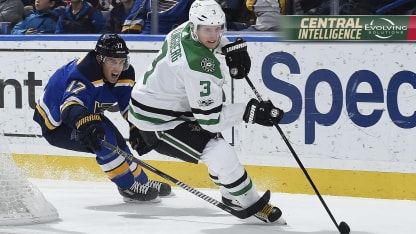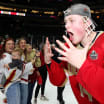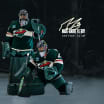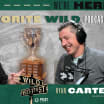It's the boom or bust tendency that Klingberg brings to the table.
Some nights, he's unstoppable. And more often than not this season, Klingberg has been just that.
While his goal scoring has remained remarkably consistent through nearly 3 1/2 seasons in the NHL, it's his ability to distribute the puck that sets him apart from others.
Think of Klingberg like a quarterback. Nearly every time he's on the ice, Klingberg is the one primarily handling the puck, whether it's starting a rush, carrying it through the neutral zone or setting something up in the offensive end.
He's also the Stars' best point weapon on the power play.
Through 32 games entering play on Friday, Klingberg is on pace to smash his career high in assists (the 48 two seasons ago), already posting 23 this season, including seven on the power play. His 27 points are the most among all NHL defensemen, three more than the next best blueliner.
At 25 years old, Klingberg has ascended to the top of Dallas' blue line after the departures of veterans Alex Goligoski, Kris Russell and Jason Demers in recent years.
It's been a chore at times in seasons past.
Dallas has been doing its best to develop younger replacements for those players, who were beginning to price themselves out of Dallas' salary cap.
While Marc Methot and Dan Hamhuis provide a veteran presence and NHL experience, they also don't offer the upside that youngsters Stephen Johns, Julius Honka, Jamie Oleksiak and Esa Lindell bring.
"You can't develop five at a time, so we're trying to work with each one and develop each one as best we can," Stars coach Ken Hitchcock told the Dallas Morning News recently. "Players who have the most top-end like Lindell are going to get more minutes. We've seen even with players like Klingberg there is still development needed there. So it's a big job, trying to get it all to fit together, but we really think we are making progress with the entire group."
Johns, Honka, Oleksiak and Lindell -- and Klingberg for that matter -- are all 25 years old or younger, meaning the future is bright on Dallas' blue line.
For Hitchcock, the biggest hurdle has been trying to find consistent playing time for all of his young defensemen so as to not stunt their development. While the Stars have struggled at times defensively in seasons past, the structure provided by Hitchcock -- one of the NHL's winningest coaches of all time -- will certainly help.
Through the first third of the season, it's been Oleksiak and Honka often splitting time sitting and playing. Sometimes, it's a delicate balance.
"We like both of them, but we also know they are at different stages in their development," Hitchcock told the Dallas Morning News. "[Honka] is a young player who is very much on the learning curve, so we play him protected. We're trying to set a foundation for him of positional play, and he's doing well with it.
"But we also are trying to teach him how to play without the puck, and that's something [assistant coach] Rick [Wilson] is working on, with understanding gaps and understanding playing without the puck, so it's a work in progress."
Wilson, a former Wild assistant coach, is one of the most respected defensive coaches in the NHL.
If he can work his magic again with Dallas and they develop as nicely as Klingberg has, the Stars could be a powerhouse in the west for years to come.



















